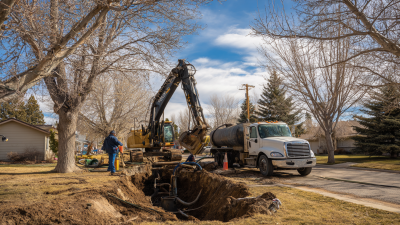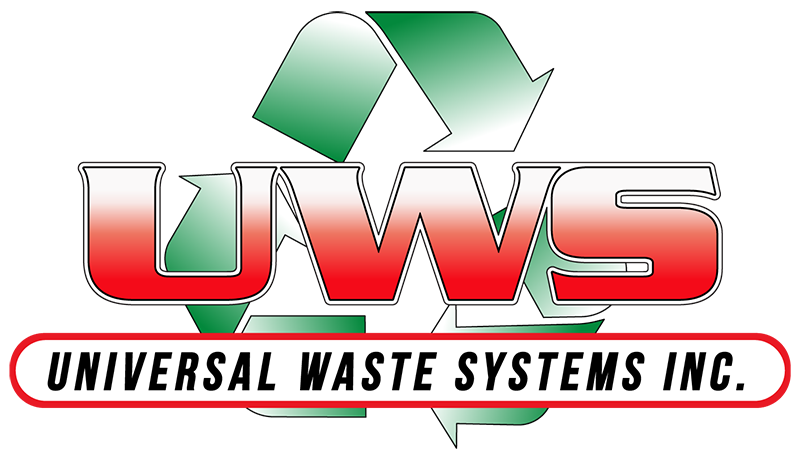Blog
7 Best Dumpster Rental Strategies to Reduce Waste Disposal Costs by 30% in 2023
In today's world, waste management is a critical concern for both businesses and individuals seeking to minimize their environmental impact while managing costs effectively. One of the most efficient strategies for achieving this goal is through smart Dumpster Rental practices. In 2023, implementing the right approaches to Dumpster Rental can lead to a significant reduction in waste disposal expenses, potentially cutting costs by as much as 30%. This blog will explore the seven best strategies that not only optimize waste disposal but also promote sustainability. From selecting the right size dumpster to understanding local regulations and leveraging recycling options, each strategy is designed to empower you to make informed decisions while managing your waste responsibly. Join us as we delve into effective solutions that can transform your waste disposal experience and contribute to a greener future.

Understanding the Impact of Waste Segregation on Dumpster Rental Costs
Understanding the impact of waste segregation on dumpster rental costs is crucial for both businesses and individuals aiming to reduce their waste disposal expenses. Effective waste segregation not only minimizes landfill contributions but also enhances recycling efforts, leading to significant cost savings. By categorizing waste into recyclable, compostable, and non-recyclable materials, dumpster rental companies can optimize their services and lower operational costs. This efficient approach can ultimately save clients up to 30% in disposal fees, making it an attractive strategy for those looking to manage their waste more responsibly.
Moreover, recent advancements in waste management technology further support the importance of segregation. Innovations such as smart trash bins equipped with IoT capabilities facilitate better sorting and tracking of waste streams. This efficiency leads to reduced contamination rates in recyclable materials, helping organizations adhere to regulations and avoid penalties. As highlighted in discussions about the future of dumpster rentals, incorporating these smart solutions can revolutionize waste management practices, ensuring that segregation becomes an integral part of the disposal process. Embracing these strategies not only aligns financial benefits with environmental responsibility but also encourages a culture of sustainability within communities.
The Role of Local Regulations in Minimizing Waste Disposal Fees
Understanding local regulations plays a pivotal role in minimizing waste disposal fees, especially in 2023 when cost-saving measures are more critical than ever. Many cities have implemented stringent waste management policies that encourage recycling and proper disposal practices, which can directly affect dumpster rental costs. According to the Environmental Protection Agency (EPA), communities that have adopted comprehensive recycling programs reduce landfill use by 20-30%, translating into lower disposal fees for businesses and individuals alike.
When renting a dumpster, it’s essential to be aware of your locality’s recycling mandates and material disposal guidelines. For example, some areas have specific requirements for separating organic waste or bulk items, and failing to comply can incur additional costs.
**Tip:** Before scheduling a dumpster rental, consult your city’s waste management website or office to understand the regulations that apply to your area.
Additionally, partnering with local waste management services can enhance your compliance with these regulations, potentially offering discounts or tailored services that align with local standards. This often includes educational resources on waste sorting and management for your business.
**Tip:** Reach out to your dumpster rental company to inquire about available programs that help customers comply with local waste disposal regulations, which can further reduce costs.
7 Best Dumpster Rental Strategies to Reduce Waste Disposal Costs by 30% in 2023 - The Role of Local Regulations in Minimizing Waste Disposal Fees
| Strategy | Potential Cost Reduction (%) | Local Regulation Impact | Notes |
|---|---|---|---|
| Choosing the Right Size Dumpster | 10% | Some municipalities charge by volume | Avoid overpaying for excess space |
| Composting Organic Waste | 15% | Composting programs may offer lower rates | Reduces overall waste volume |
| Recycling Materials | 20% | Regulations encouraging recycling | Minimizes landfill fees |
| Avoiding Contaminated Loads | 5% | Local laws on hazardous waste | Prevents extra charges |
| Using Rental Period Wisely | 10% | Fees increase with overages | Plan disposal schedule |
| Negotiating Rental Rates | 10% | Some areas regulated, others competitive | Inquire for discounts |
| Educating Staff on Waste Management | 5% | Compliance with local policies | Improves waste segregation |
Exploring Volume-Based Pricing Models for Cost-Effective Dumpster Rentals
When it comes to managing waste and reducing disposal costs, volume-based pricing models for dumpster rentals offer an innovative solution that can significantly lower expenses. By shifting from traditional flat-rate fees to a pricing structure based on the amount of waste generated, businesses and homeowners alike can tailor their waste disposal strategies to suit their specific needs. This not only encourages responsible waste management but also promotes recycling and composting, as customers are incentivized to minimize their waste volume.
Implementing volume-based pricing allows users to pay only for the space they actually use, making it a more cost-effective option for many. For instance, if a project generates less waste than anticipated, the user saves money rather than paying a fixed price for a larger container that may not be fully utilized. As organizations seek to become more environmentally conscious and budget-savvy in 2023, transitioning to this flexible pricing model can be a game-changer in reducing waste disposal costs by up to 30%. Moreover, by making smarter choices about waste outputs, users not only benefit financially but also contribute to sustainable practices within their communities.
Utilizing Recycling Programs to Offset Waste Disposal Expenses
One of the most effective strategies to reduce waste disposal costs by 30% is by incorporating recycling programs into your waste management plan. According to the Environmental Protection Agency (EPA), recycling and composting prevented the release of approximately 186 million metric tons of carbon dioxide equivalent into the air in 2018, which equates to removing over 39 million cars from the road for a year. By diverting materials from landfills, businesses can significantly lower their overall waste disposal expenses.
To maximize the benefits of recycling, consider implementing a comprehensive recycling initiative tailored to your specific operations. Tip: Start by conducting a waste audit to identify recyclable materials within your waste stream. Once you have a clear understanding, set achievable recycling goals and communicate them to your team.
Moreover, partnering with local recycling facilities can help streamline the process and often provides financial incentives. Tip: Explore bulk recycling options or pick-up services that can reduce costs and simplify logistics. By actively engaging in recycling programs, companies can not only reduce waste but also contribute positively to their community and environment.
Effective Planning: How Project Duration Influences Dumpster Rental Costs
When planning a project that involves waste disposal, understanding how project duration influences dumpster rental costs is crucial for staying within budget. Longer project timelines can lead to increased rental expenses, as daily rates accumulate over time. Therefore, efficient project management becomes essential to minimize these costs. By strategically planning the timeline and coordinating the waste removal schedule, project managers can significantly reduce rental periods, ultimately lowering costs.
Consider implementing a timeline that is both realistic and efficient. Break the project down into phases, and assess each phase's waste generation. This allows for the timely ordering of dumpsters that match the expected waste volume, avoiding unnecessary overage charges. Additionally, clear communication with the rental provider about the project duration can lead to better-negotiated rates or discounts based on longer rentals. By taking these steps, project managers can achieve substantial savings on waste disposal costs while ensuring a smoother, more organized operation.
Related Posts
-

Top 10 Garbage Removal Manufacturers from China at the 137th Canton Fair
-

Top Strategies for Maximizing Efficiency in Waste and Recycling Management
-

Innovative Solutions for Efficient County Waste Management
-

Unlocking Quality Suppliers: The Definitive Guide to Sourcing County Waste Solutions Globally
-

5 Essential Septic Services Every Homeowner Should Consider for Optimal Maintenance
-

Ultimate Checklist for Finding the Best Garbage Removal Service in Your Area
Request a Quote
Fill out the form below and one of our specialists will contact you to discuss your questions and needs.
